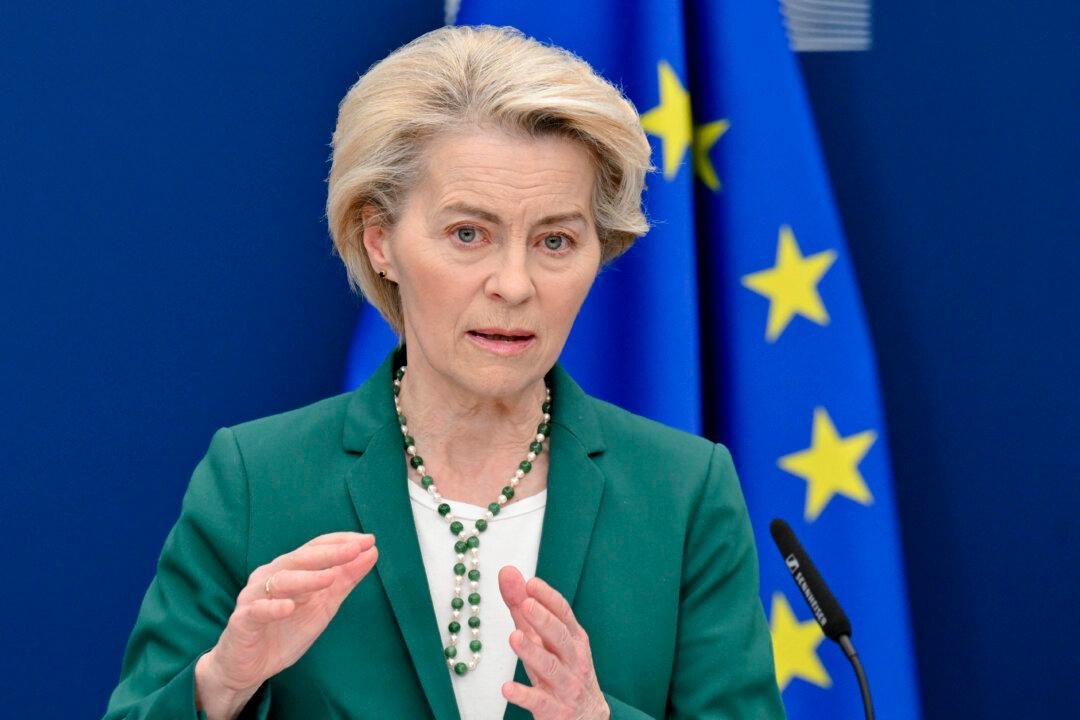The president of the European Commission suggested that the 27-nation European Union offer “zero-for-zero” tariffs on certain goods amid market uncertainty over duties announced this past week by the Trump administration.
“We stand ready to negotiate with the U.S. Indeed, we have offered zero-for-zero tariffs for industrial goods as we have successfully done with many other trading partners,” European Commission President Ursula von der Leyen told reporters on Monday.





